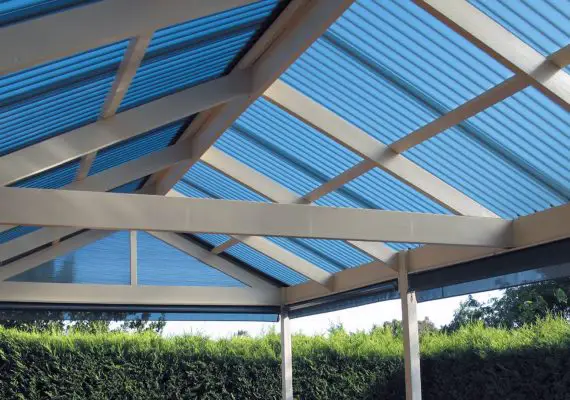Can You Spray Foam Insulation on A Metal Roof?
Can You Spray Foam Insulation on A Metal Roof?
Yes, you can apply spray foam insulation over a metal roof. Spray foam insulation is popular for retrofits and new construction because it is strong and relatively easy to install. However, it is more expensive than other options, so it may not be cost-effective in every case.
Spray foam can also be difficult to install because of the high temperatures and the requirement that the air is thoroughly cleaned before the spray foam can harden.
It’s important to work with an experienced professional when installing spray foam insulation because the material should never come into direct contact with a heat source such as an attic floor or ceiling joist.
How Do You Install Foil Insulation On A Roof?
Installing foil insulation on a roof is a simple process that can be completed in a few steps. First, you will need to measure the area of the roof that you wish to insulate. Next, you will need to cut the foil insulation to fit the area of the roof.
Once the insulation is cut to size, you will need to apply adhesive to the back of the insulation. After applying the adhesive, you will need to place the insulation on the roof. Once the insulation is in place, you will need to seal the edges of the insulation with tape.
Can You Put Foam Insulation Under A Metal Roof?
Spray foam insulation can be applied to decking underneath metal roofing panels before the installation of the metal panels. This can be beneficial in several ways, as it can help improve the home’s energy efficiency and prevent any unwanted heat transfer.
In addition, spray foam insulation can help reduce noise levels from metal roofing panels. It can also help provide a clean, finished look.
How Thick Should The Insulation Be On A Warm Roof?
When determining how thick the insulation should be on a warm roof, you should aim for a value of 0.25 W/m2K or less. To achieve this, you should insulate your flat roof with insulation boards around 150mm.
This will help to ensure that your roof is properly insulated and will not experience any issues with heat loss.
It is worth emphasizing that the installation of insulation boards is only required if you have a flat roof. You can also install traditional insulation on a warm roof, but this may not be as effective at preventing heat loss.
What Is The Best Insulation For A Flat Roof?
The best insulation for a flat roof is closed-cell polyurethane spray foam. This type of insulation is applied in layers, with each layer around 1-2 cm thick. The total thickness of the insulation layer can range from 3 to 12 cm, depending on the needs of the particular roof.
Closed-cell polyurethane spray foam is an effective insulation material because it has a high R-value, meaning it is effective at preventing heat transfer.
In addition, closed-cell polyurethane spray foam is also resistant to water and moisture, meaning it will not degrade over time due to exposure to the elements. It is also relatively easy to install on a flat roof and is considered one of the most effective roof insulations.
What Is Roof Tapered Insulation?
Roof tapered insulation is a type of insulation that is specifically designed for use on roofs. It is made up of a closed-cell polyisocyanurate foam core that is laminated to a premium performance-coated glass facer.
The combination of these two materials results in a highly resistant product to fire, moisture, and dimensional instability. This is a product that is durable and highly effective at keeping heat out of the interior of your home.
What Is ISO Roof Insulation?
Polyisocyanurate (polyiso) thermal insulation is a closed-cell foam insulation material with several advantages for use in low-slope commercial building roofs. It is an effective insulation solution due to its high R-value per inch and low water absorption rate.
Additionally, polyiso is resistant to fire and mold growth, making it an ideal choice for safety-conscious building owners and operators. It can also be used as a roofing cover board or in building envelope applications, such as windows and doors.
What Is The Code For Roof Insulation?
The code for roof insulation refers to the minimum insulation requirement that must be installed above the roof deck in order to meet the energy-efficiency requirements set forth by the State Building Code.
As of August 1, 2022, the minimum insulation requirement for commercial buildings in all Climate Zones is R-30. This code is designed to improve the energy efficiency of commercial buildings, helping to reduce the overall consumption of energy and the associated costs.

